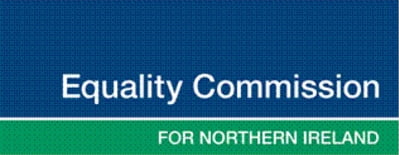In June this year the Equality Commission revealed its findings from the Do You Mean Me? survey examining the experiences and attitudes towards discrimination in Northern Ireland.A statement released by the Equality Commission read – “The key question is “Do you Mean Me?” and this is double-edged. It is not just have I experienced discrimination because of who I am, but do I have negative attitudes towards others just because of who they are? Where the answer to the second question is yes, then we each need to address what makes us think like this and challenge our own beliefs and stereotypes.
The report revealed that there has been a dramatic hardening in negative attitudes, linked to levels of social contact towards people from different backgrounds including race, disability and sexual orientation over the last six years and some of its findings could surprise you.
Michael Wardlow, Chief Commissioner said: “This study provides a valuable insight into our society, how we connect with others and who we are as people.”
1,101 people were asked face-to-face about their attitudes last year.
• Since 2008, the last time the three-yearly survey was performed, the number of people who perceive such discrimination against themselves has risen from 16 percent to 33 percent.
• 27 percent of people polled said they would mind having a gay, lesbian or bisexual person living next door, compared with 14 percent in 2005. Four in ten would be unhappy about them becoming an in-law, a rise of 13 percentage points over the last six years.
• With the survey asking about trans people for the first time, 35 percent of people said they would mind a transgender person as a work colleague. 40 percent objected to the idea of having a transgender person as a neighbour and 53 percent would mind if a trans person had a relationship with a member of their family.
Evidently there have been some sharp rises in negative attitudes towards LGBT people in a relatively short space of time and understandably some groups are now feeling that much more needs to be done to stop these trends continuing.
John O’Doherty, Director of The Rainbow Project said: “This report provides some startling information about attitudes towards LGBT people. Not only do negative attitudes still exist, they are on the increase. What this report clearly shows is that not enough is being done to address the negative perceptions that exist against LGBT people. While Government Ministers continue to refuse to introduce legislation to allow same sex couples to adopt children or get married, no consideration is given to the impact this has on attitudes towards our community. While government continues to treat LGBT people as second class citizens there is the risk that this is how LGB&T people will be viewed by the general public.”
Mr Wardlow was keen to express his views on how best to resolve some of the points raised in the report outlining the importance of civic engagement with unfamiliar social minorities in changing people’s attitudes:
“For me, the big thing is that we need people to meet more often. We need more civic engagement. Research shows consistently that when contact happens in a facilitated way, when all sides of the “in and out” groups are treated in the same way, with respect and in a safe place, people get to know the other groups, relationships develop and the fear factor goes. That is a huge meta-analysis of contact theory. It has been going on for 10 or 15 years. The theory first came forward in 1954.
We know part of the solution. This is about facilitated contact in safe places to allow people to get to know the transgendered person whom some 50% of us do not want as an in-law, probably because we have never met one, or the Traveller whom we do not want in the family, probably because we have never met one.”
There is no good reason why the Government is so limited in its approach to good relations in Northern Ireland and there are calls for The Equality Commission to step up to the mark and start to make recognisable changes. Unfortunately this is now the third time this wide ranging research has revealed attitudes towards LGBT people are getting progressively worse. The newly included statistics for the Trans population of NI are particularly disturbing and will most certainly require some extra attention.
On a more positive note the survey did show some more encouraging statistics with most (91% of) people in support of equality laws here and in most cases the majority of people didn’t hold any negative attitudes.
Much has yet to be done in regards to dealing with and tackling these problems in our society and if anything these statistics only serve to highlight the fact that it is becoming increasingly difficult to live as an LGBT individual in Northern Ireland. The Equality Commission are dedicated to making these changes a reality and already helps around 3,000 individuals each year resolve issues of discrimination. It will however be extremely interesting to compare our results with the next survey in 2014 and see how successful the organization is in achieving these changes.



You must be logged in to post a comment.